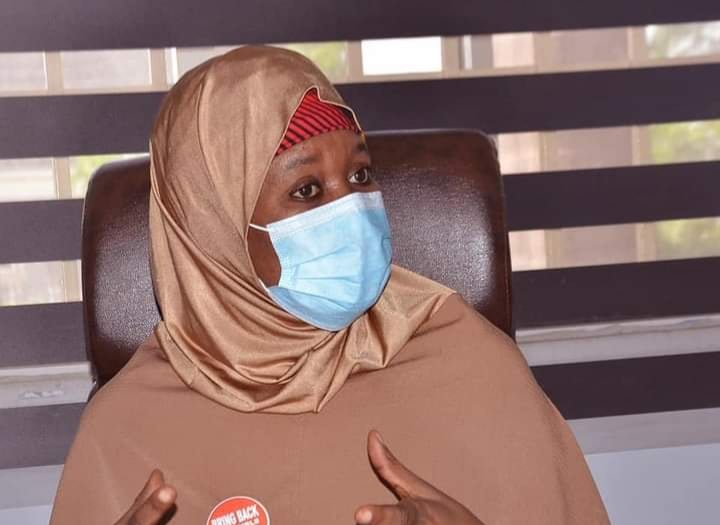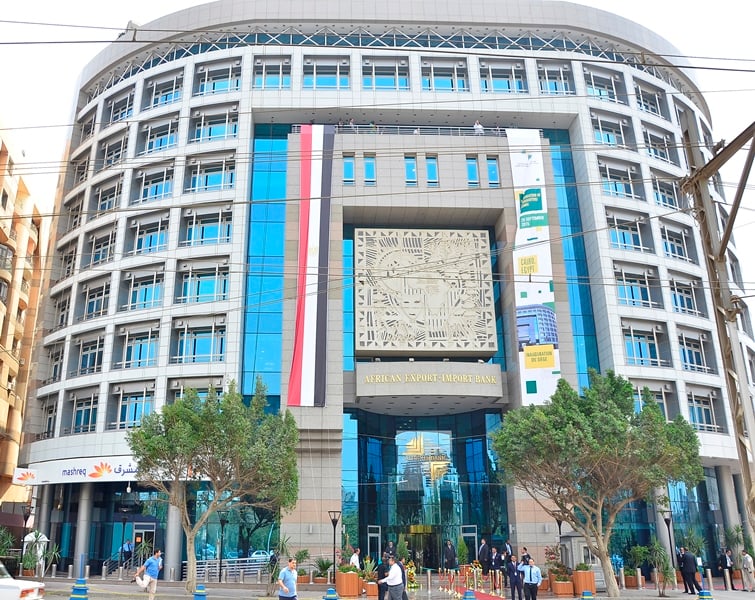A young boy displays a snake he killed on farm in Sepeteri/Omolola Afolabi/The Cable
BY OMOLOLA AFOLABI
Calm as a millpond, Mufeedah Aliyu cooed infectiously. She waved her fingers and snuggled close to her grandmother, who cuddled her, then whipped out a bottle filled with congealed pap with which she fed her.
It had been months since Mufeedah’s mother, Halimat, died as a result of a snakebite in the Sepeteri area of Oyo state. Following her death on August 27, 2021, the responsibility of caring for her infant child fell on her mother-in-law, 75-year-old Abidatu Abdulazeez.
“We have been feeding her on a bottle since she was six months old,” Abidatu said as she adjusted the baby’s bib.
Advertisement
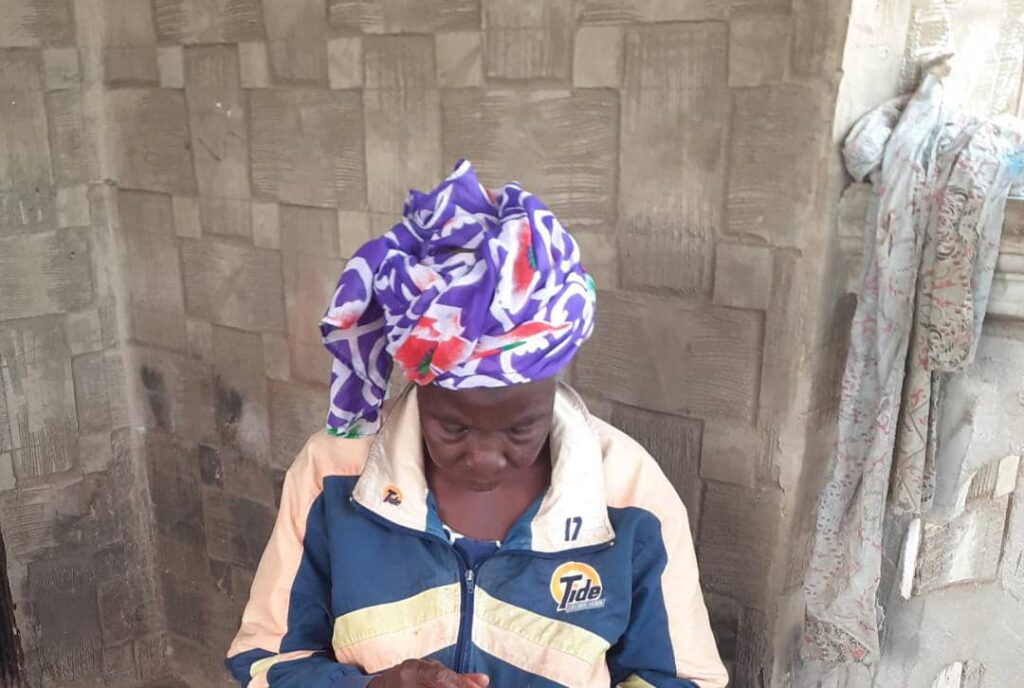
Sepeteri, the largest town in Saki east LGA, is surrounded by Igboho, Saki, Ago Are and Iseyin — all in the Oke-Ogun region of Oyo. Over 70 percent of the residents of the community are farmers.
The brown mamba, which is commonly found in the community, is known locally as ‘paramole’. Other snakes found in the area include the West African carpet viper, the puff adder and the spitting cobra.
Abdulazeez Aliyu, Halimat’s husband, described his late wife as a hardworking woman, adding that she was a teacher in the only private primary school in the community — Muslim Primary School, Sepeteri.
Advertisement
“We went to the farm early on a Saturday. As we parked the vehicle, she came down first and was bitten by a snake on her right heel. We rushed her to the UCH facility immediately, and we were told that they were expecting someone. That person never came,” Aliyu recounted, as he narrated the events leading to her death.
“While looking for the fastest alternative, we were advised to take her to Saki. We, however, took her to a private hospital because of the distance.
“She was admitted and given treatment, but three days later, she died. She was vomiting blood and we later understood that the venom had gone through her body.”
Aside from a University College Hospital (UCH) annex in Sepeteri, there is the Muslim Hospital in Saki, about 30 kilometres away, which is the nearest facility where residents can get treatment for snakebites.
Advertisement
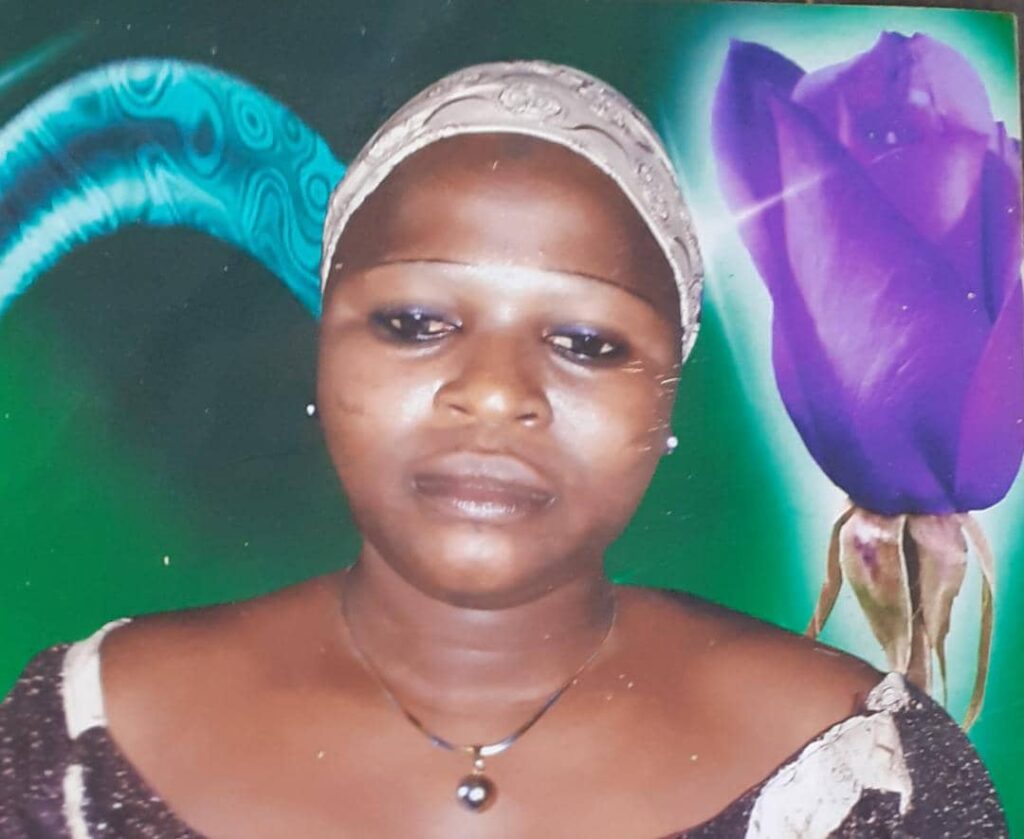
TWO MORE TODDLERS TO RAISE
Mufeedah’s siblings, six-year-old Ridwan and four-year-old Mashidat, are in the care of Halimat’s mother, 69-year-old Saratu Raheem. When TheCable visited, Saratu was found at a hearth trying to make breakfast.
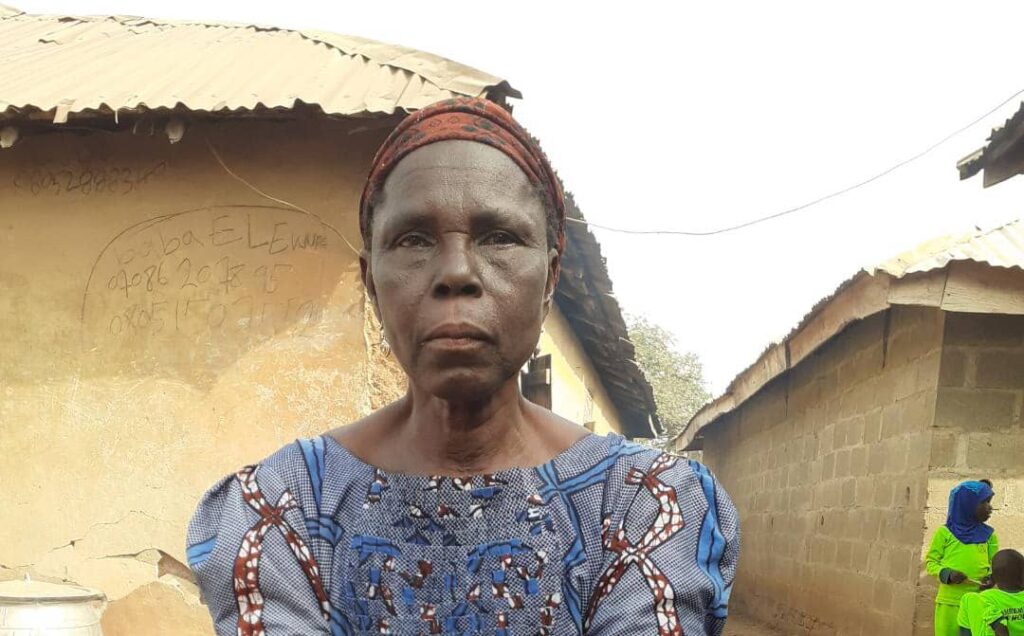
Saratu, a widow, appeared distraught as she spoke about the death of her only daughter.
“I am consoled by God and the children, although it’s hard to accept such a fate. On that fateful morning, she told me she wouldn’t stay long at the farm. I was later told she had been bitten by a snake and rushed to a private hospital,” Saratu said.
Advertisement
“She was given some antivenom. We were willing to spend any amount of money to save her life. She was recovering steadily until she complained of drowsiness. After three days, she vomited twice and died.”
‘I WOULD HAVE DIED’
Advertisement
While Halima succumbed to the snakebite, some other residents were lucky enough to survive and recount their experiences.
Mujidat Mudashiru, a millet and maize farmer, said she would have died if not for the prompt intervention of her husband who took her to the Muslim Hospital in Saki.
Advertisement
“I was taken to the UCH centre but we were told there were no drugs. So, I was immediately rushed to Saki. On the way to Saki which took about an hour, I felt like the venom was travelling through my body, while my leg where I had been bitten started to feel numb,” the 43-year-old, who currently walks with a slight limp, said.
A 71-year-old resident identified as Baba Kekere was also said to have died of snakebite. His brother, who asked not to be named, said after Baba was rushed to a hospital, there were challenges with raising funds for treatment.
Advertisement
“If we could afford the treatment, perhaps he would have survived,” the brother added.
For Okewole Muritala, aged 60, another maize and millet farmer, the unavailability of workers at the UCH facility worsened the situation.
“I stepped on a snake while I was farming and I got bitten. Then, I was taken to UCH here but the facility was not open. I was taken to Saki afterwards where I was treated,” he said.
SNAKEBITE TREATMENT CENTRE DESERTED
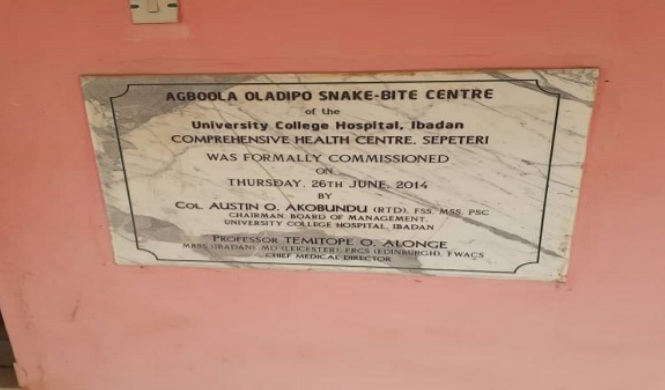
The comprehensive health centre in Sepeteri is under the administration of the University College Hospital (UCH), Ibadan.
Years after former Senate President David Mark inaugurated the facility in 2014, it has grappled with epileptic power supply that hampers the effective operation of the blood bank and X-ray unit, while the staff quarters are also inhabitable.
The facility also consists of a snakebite treatment centre, which is now deserted and surrounded by bushes. When TheCable visited the facility, it was locked. A public health official who asked not to be named later allowed access into the facility. Inside, there were vacant beds for patients. The beds looked new, some still wrapped in polythene.
“The problem we have is the lack of light as antivenom can’t be stored for so long. The encouragement is not there for the community to patronise us. The antivenom is mostly brought in from UCH, Ibadan,” the official said.
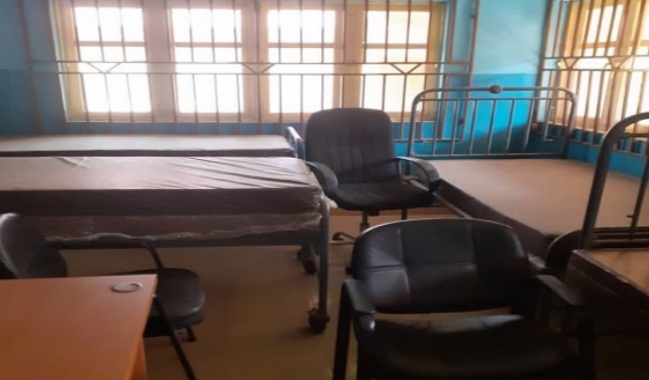
The official said for the facility to be functional, “we have to get power in the centre”.
Azeez Dansalam, community secretary of Sepeteri, told The Cable that efforts to get the facility running have been futile.
“We have contributed over N20 million for the installation of solar-powered plants in the hospital,” Dansalam, a former schoolmaster, said.
“Most times, when we rush our people to the hospital to get treated, they refer us to a private hospital. This is despite all our contributions. In the end, many consult herbalists for treatment.”
‘NIGERIA IMPORTS ANTIVENOM FROM UK, COSTA RICA’
According to Osagie Ehanire, minister of health, Nigeria ranks among the worst-affected nations in terms of snakebites, with an average of 20,000 cases recorded every year, including about 2,000 deaths.
Speaking on how Nigeria can improve snakebite treatment, Akindele Adeyi, a researcher in animal physiology and lecturer at the University of Ibadan, said although antivenom can be produced locally, there is a need to address the exportation of snakes since venom is the most important ingredient for producing antivenom.
“Most antivenoms are usually brought into Nigeria by the ministry of health. So, there are always issues of importation and a perennial problem of shortage of antivenom,” he said.
“If antivenom is to be produced, then the snakes are to be milked — the process of extracting venom from snakes. This informs the exportation of the extracted venom to other countries where it can be processed. You would need to export Nigerian snakes to Costa Rica and the United Kingdom.
“You could also get antivenom in some big pharmacies in Nigeria but they are mostly produced using Indian snakes, which renders them ineffective for local use.”
PLANT TREATMENT ALTERNATIVE
Adeyi also said research has been intensified on the use of plants to treat snakebites.
“One of those plants is the one we have tested on six species of snakes in Nigeria and we found out that it works. We isolate enzymes from the venom and use components of the plant to inhibit those enzymes. We have injected the venom into rats, used the plant to treat them, and saw that they survived,” he said.
“The antivenom is an immunoglobulin, and most antivenoms are usually in liquid form. To improve the lifespan of the antivenom and ensure it is not dependent on temperature to be viable, it has to be made into solid form.”
Adeyi, whose expertise is in venomics (the study of snakebites), has been invited — alongside a team of researchers — to develop a national policy for Nigeria on snakebite treatment and management.
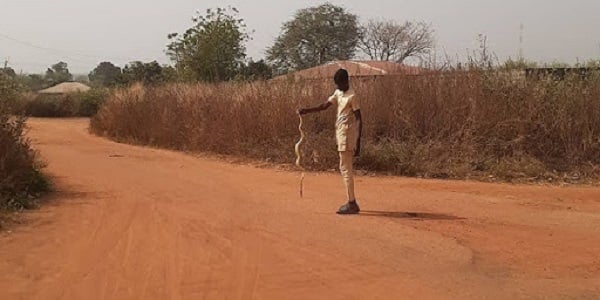
“The report has been submitted to the health ministry and subsequently to the national health council and the federal executive council. We don’t know the level they are now,” he said.
“Government needs a lot of willpower to achieve that and the onus rests on the ministry to take charge of that.”
A vial of antivenom costs about N40,000, and a victim would need up to three, depending on the severity of the bite. Adeyi, however, said he hopes that when the proposal is approved, the cost would be subsidised so that poor people can afford it.
‘IFA DOESN’T ACCEPT MONEY FOR SNAKEBITE TREATMENT’
Okedoyin Alao is the Oluwo (diviner) of Sepeteri. He also serves as the deputy chief traditional healer of the community and has treated snakebite victims using herbs.
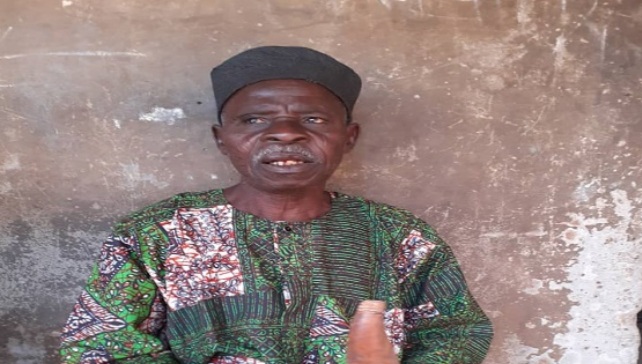
“Sometimes, we ask for kola nuts only when the treated person returns cured. That is the way it was handed to us. Healing people is not a money-making enterprise. We seek to save lives first. If the person desires, he or she can show gratitude afterwards,” Alao said.
N24M ALLOCATED FOR SEPETERI SNAKEBITE CENTRE
While the centre sits idle, according to the 2021 budget, a total of N24,295,265 was allocated for the “construction and equipping of snakebite treatment centre in Sepeteri, Oyo state”. This is an interesting development considering that the centre was constructed in 2014.
However, efforts to determine if the funds for the centre were disbursed were unsuccessful as the open treasury portal (OTP) has been inaccessible for days.
Confirming the issues with the portal on Wednesday, the federal government said the problem with the site would soon be resolved.
Meanwhile, when contacted, Toye Akinrinola, UCH spokesman, claimed that the centre was “now fully functional”.
But Azeez Dansalam, secretary of the community, countered the claim and said “there is no new development on the facility” as of Wednesday afternoon.
Add a comment


